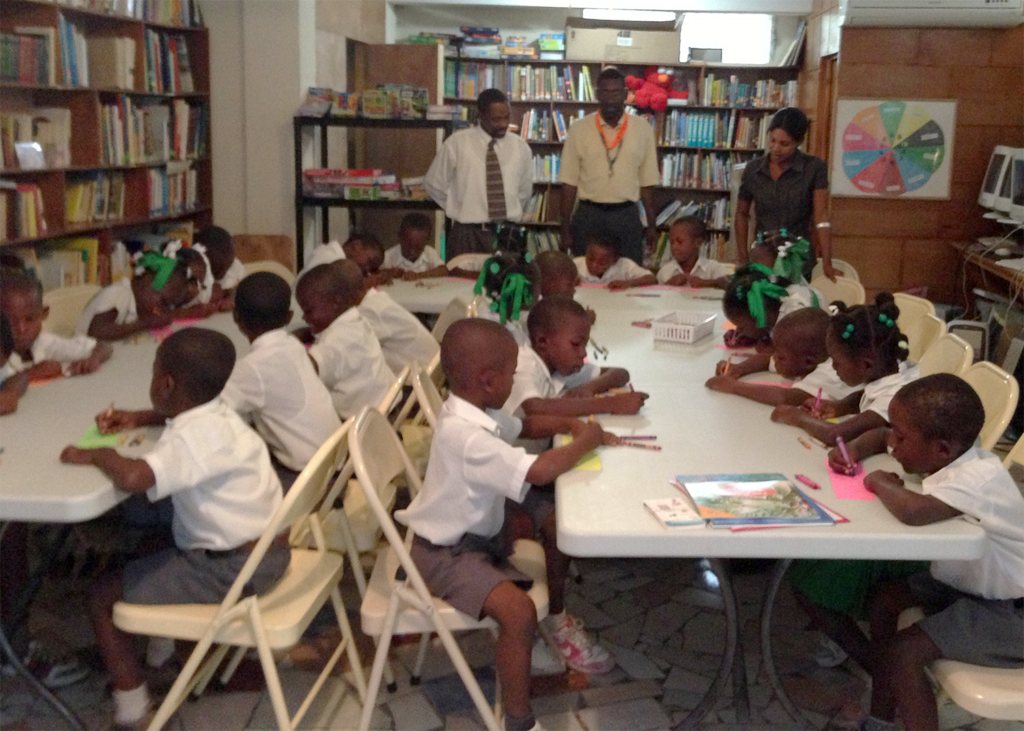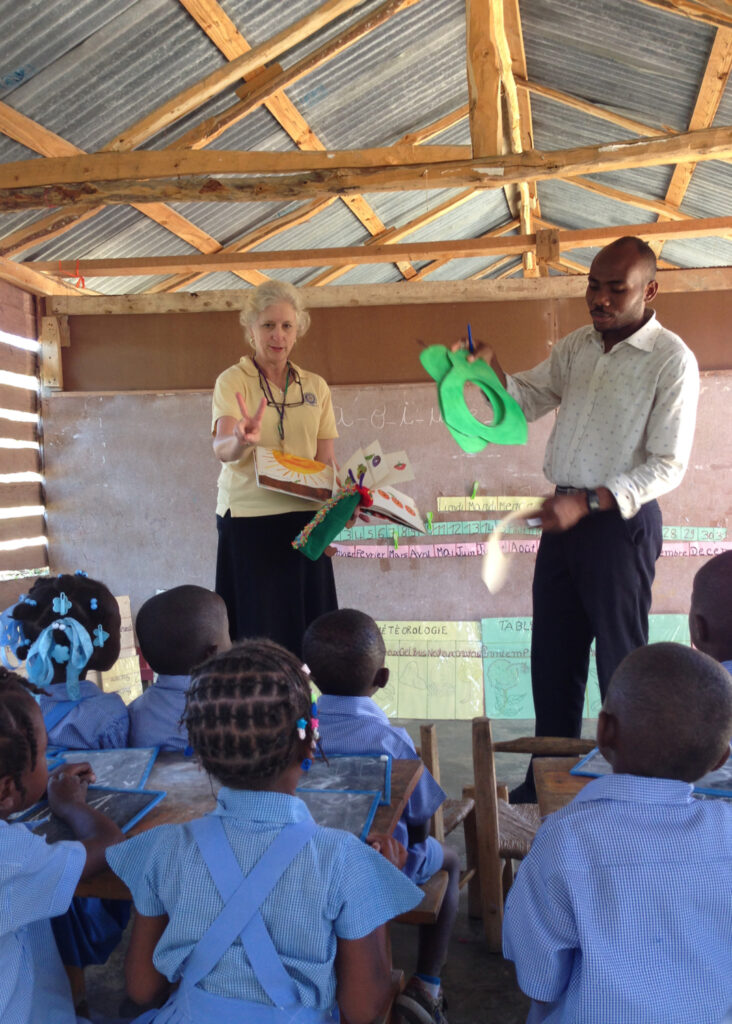The Importance of Kreyòl (Continued)
When children (birth to 8) develop their language in their Mother Tongue, they are simultaneously fostering a whole host of other essential skills including:
• the critical thinking and grammatical awareness which they can then transfer later to a second language.
• a heightened vocabulary, background knowledge, and comprehension ability
• a sense of well-being and self-confidence and pride which results in improved academic achievement.
Teachers once trained in proper Kreyòl linguistics, will be more self-confident too, answering questions and using interactive dialogue.

Nurturing Early Literacy (birth to 8-year-olds)
The period of learning from birth through 4 years old is the most critical of a child’s lifetime. With stimulation, a toddler’s brain cells begin to double in size and continue building. As the child grows throughout these years denser pathways between cells called “synapses” are created in the brain that make more intelligence and understanding possible. All involved in a child’s education can learn about this through library information and programs.
From ages 3 through 5, library activities centered on the areas—”read, write, sing, talk, listen and play” modeled by librarians with K-3, K-4 and K-5 teachers, parents and caregivers participating, draw young children into wanting to learn to be able to “write and read by myself”.
Three important results of this interactive learning are related to literacy:
- Young toddlers and preschoolers who have listened to many stories and enjoyed library time, enter kindergarten as many as 14 months ahead in language and pre-reading skill awareness.
- Frequent reading aloud to children from birth to age 5, is the single most important activity to produce young readers in primary school.
- The larger a child’s vocabulary, his/her “word bank,” the easier for beginning to read will be.
Reading books in the library’s story times and at home are important. If parents are not literate, older siblings can be coaches. Big brothers and sisters like to show off their own reading and writing proficiency; little ones like to imitate them. In the poorest homes, oral storytelling and family tales shared by relatives increase vocabulary and attention skills.

Teachers work with students to build phonemic awareness, phonics and word study, fluency, vocabulary, and comprehension, the critical reading skill areas of kindergarten through early primary school. With teamwork, the village librarian can provide books for practice and pleasure, with these fundamental reading skills. Additionally, together they can develop children’s social and emotional learning(SEL), the identification of feelings, self-awareness, and relationship skills through story time discussions. For instance, what were Goldilock’s feelings during her visit to the Three Bears? How would you have reacted?
Activities of very young children in preschool and kindergarten are critical building blocks to literacy education throughout primary school and beyond. To learn to read is life-changing. Librarians—teachers—parents—caregivers are the team to make it happen. Invited by the village, PILH’s library services and community advocacy can focus on marginalized communities bringing education, progress, and hope.